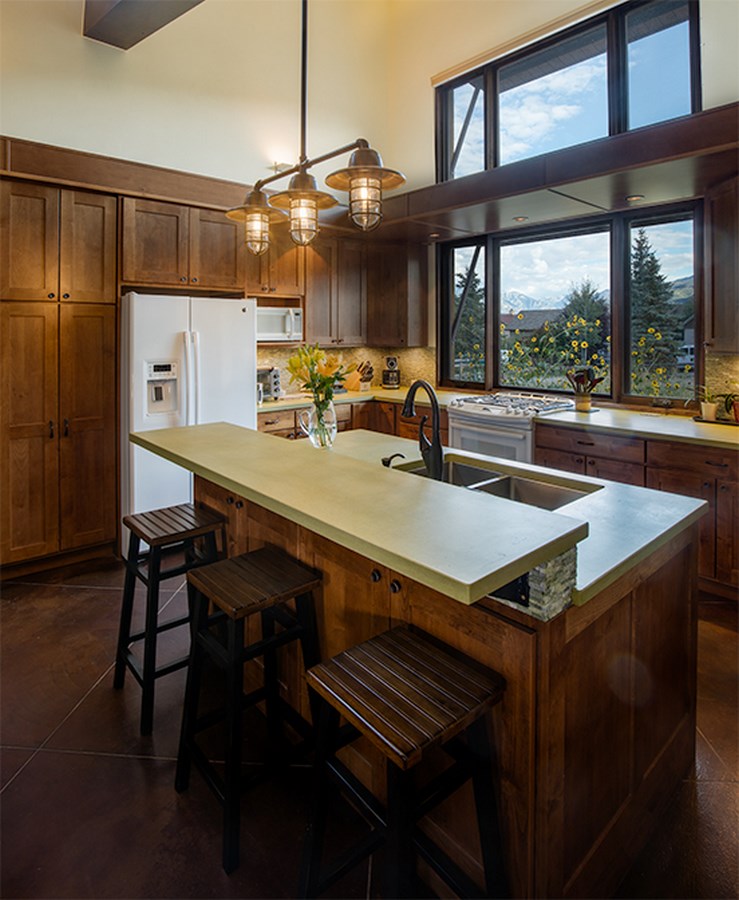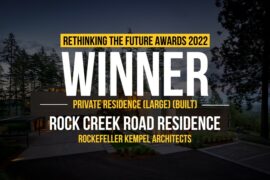A small passive solar home built on a very modest budget in the high desert town of Ridgway, Colorado. The house is built on a highly insulated 7” thick concrete slab, which serves as the finish floor and also serves as a heat sink for the home. The walls and roof are traditional stick-framing with cellulose and urethane foam insulation.
Architect: Conterra Workshop
Location: Ridgway, Colorado USA
Status: Built
Size: 1700 square feet = 158 square meters

Fixed exterior shading: Sunlight through windows on the South façade is carefully controlled through both interior window treatments and fixed exterior shades. The fixed exterior shades omit most sunlight in summer months, when the sun is higher in the sky. In winter, when the sun is low, most sunlight is admitted below the fixed shades to warm the house. Because winter heating is the primary energy use for homes in Ridgway Colorado, and because the home owners do not use bedrooms in the daytime, fixed shades were not installed above the south facing windows in the master bedroom.

The “big move” is evident from the street. The big shaded glass of the South facade warms the house with natural light and opens it to mountain views. The angled beams cast dynamic daytime shadows and support simple light fixtures for task lighting at night. The high central space can be opened wide to daylight, breezes and views. The central space contains the kitchen and living room, which extends back into a private shady garden. Bedrooms are separated across this central “public” space.


John Baskfield
John Baskfield is a licensed architect who became fascinated with building when he first began to learn building trades as a young man. He has worked as a carpenter, furniture builder, and architect in Western Colorado since 1992. He has received several design awards in architecture, most notably for his work in sustainable design.
His work responds first to the people and natural environment of the site, yet is often inspired by the work of great architects, artists and craftsmen. His experience in construction contributes greatly to his practice of architecture. His work enriches the lives of occupants, respects the natural environment and strengthens the cultural fabric of the unique towns and landscapes of the West.





